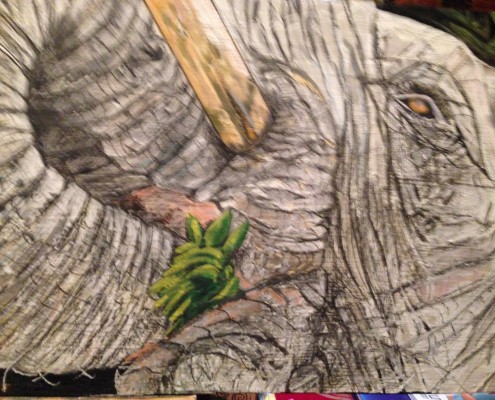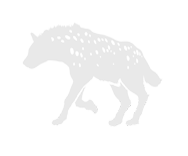Elephant, one of the Big 5
African Elephants are listed as vulnerable by the International Union for Conservation of Nature (IUCN), while the Asian Elephant is classed as endangered.
When on Safari in South Africa or  the Kruger National Park, tourists will be awed by these majestic animals, which is one of the Big 5.
the Kruger National Park, tourists will be awed by these majestic animals, which is one of the Big 5.
Widely recognized as the most impressive animal in Africa Wildlife, the African Elephant measures between 3.2 and 4 meters at the shoulder and weigh an average of 6.5 tons. The elephant’s trunk serves as a multipurpose tool for eating, cleaning, signalling, drinking water, digging, dusting and even as an extra limb when needed. Capable of reaching up to 7 meters in length, the elephant’s trunk is a strong muscle that has the ability to twist tightly around objects and is mostly used for tearing wood from trees or when fighting. Elephants are herbivorous, can be found in savannahs, forests, deserts and marshes and dedicate their energies to pushing over trees to eat. Elephants usually eat around 270-300kgs of food every day. They prefer to stay near water. Other animals tend to keep their distance, predators such as lions, tigers, hyenas and wild dogs usually target only the young elephants. Females tend to live in family groups, which can consist of one female with her calves or several related females with offspring. The groups are led by an individual known as the matriarch, often the oldest female. Males leave their family groups when they reach puberty, and interact with family groups when looking for a mate and enter a state of increased testosterone and aggression known as musth, which helps them gain dominance and reproductive success. Calves are the center of attention in their family groups and rely on their mothers for as long as three years. Elephants can live up to 70 years in the wild. They communicate by touch, sight, smell and sound; Elephants use infra-sound and seismic communication over long distances. They appear to have self-awareness and show empathy for dying or dead individuals of their kind.
(Reference: www.southafrica.com)


Leave a Reply
Want to join the discussion?Feel free to contribute!